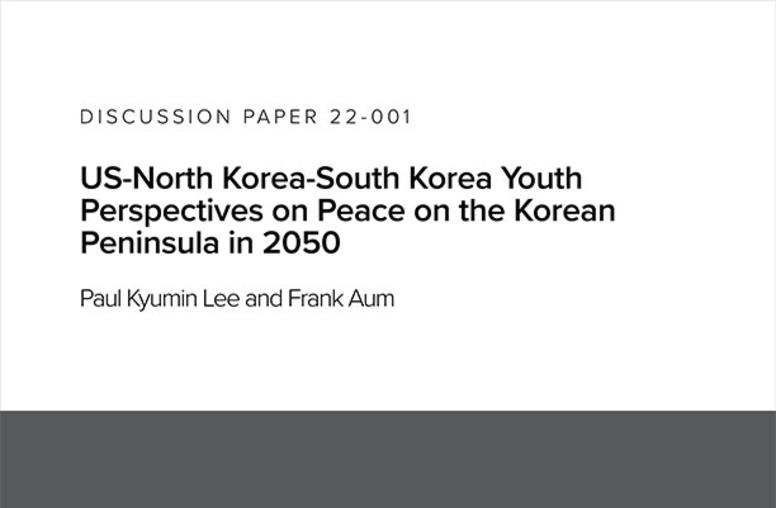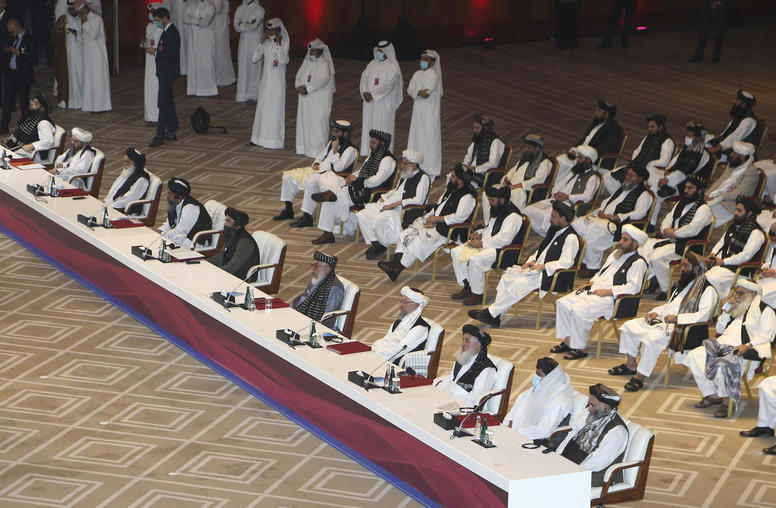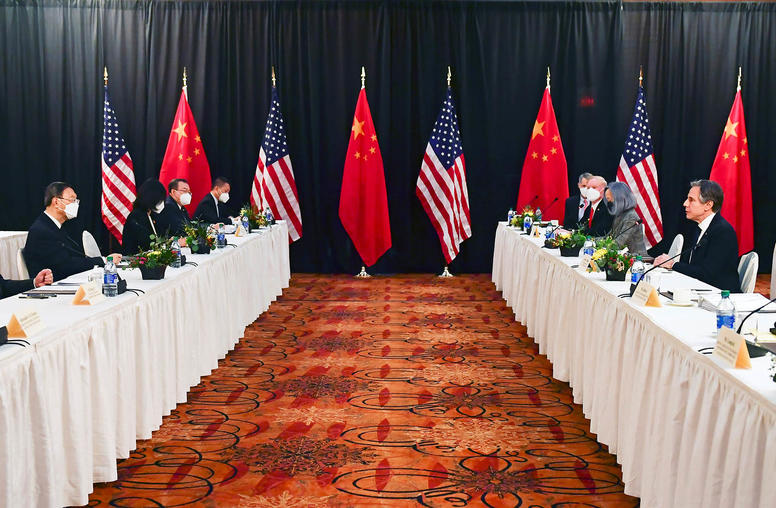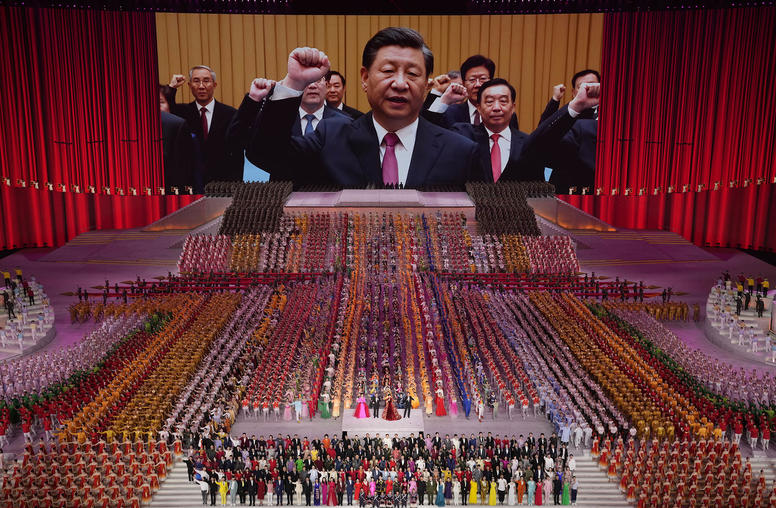Publications
Articles, publications, books, tools and multimedia features from the U.S. Institute of Peace provide the latest news, analysis, research findings, practitioner guides and reports, all related to the conflict zones and issues that are at the center of the Institute’s work to prevent and reduce violent conflict.
Question And Answer
Why Counterterrorism in Afghanistan and Pakistan Still Matters
Question And Answer
What Does the Xi-Ma Meeting Mean for Cross-Strait Relations?

Frank Aum on North Korea’s Provocations
The recent escalation in North Korean missile tests and military exercises is Pyongyang's attempt at gaining leverage over the United States, says USIP's Frank Aum: "They want to create a crisis in order to pressure the United States back into talks on [North Korea's] terms."

U.S.-North Korea-South Korea Youth Perspectives on Peace on the Korean Peninsula in 2050
This paper describes a virtual workshop on envisioning peace on the Korean Peninsula for youth from the United States, North Korea, and South Korea that was conducted over three days in January 2021. The workshop was designed, organized, and facilitated by the United States Institute of Peace, and participants were selected in partnership with Liberty in North Korea and the International Student Conferences' Korea-America Student Conference.

Andrew Scobell on China’s National Party Congress
Chinese leader Xi Jinping cemented himself as "clearly the most powerful ruler in China since Mao" at the recent National Party Congress. But USIP's Andrew Scobell says Xi has staked his legitimacy on delivering for the Chinese people — and sputtering economic growth poses a significant challenge going forward.

Why Was a Negotiated Peace Always Out of Reach in Afghanistan?
August 30, 2022, marks the one-year anniversary of the last US troops leaving Afghanistan. During America’s 20-year military intervention, there were several opportunities to negotiate peace among the Taliban, the Government of the Islamic Republic of Afghanistan, and the United States—but these opportunities were missed, went unrecognized, or were deliberately spurned by one or more of the parties. In this important history, Steve Brooking, the first British official sent into Afghanistan after 9/11, examines why the three parties were unable or unwilling to reach a negotiated settlement.

Belquis Ahmadi on Afghanistan a Year After the Taliban Takeover
A year on, the situation in Afghanistan is “looking really grim” as women and girls have lost the gains made over the past two decades and the country’s humanitarian crisis continues to spiral, says USIP’s Belquis Ahmadi. “The Taliban are trying to erase women from society.”

US-China Signaling, Action-Reaction Dynamics, and Taiwan: A Preliminary Examination
The United States and China have found it challenging in recent years to interpret one another’s foreign policy signals vis-à-vis Taiwan. Misinterpretation of the signaling may contribute to a cycle of actions and reactions that can inadvertently elevate bilateral tensions to the point of crisis or even war in the Taiwan Strait. This report, co-authored by three USIP experts and three experts from China’s Shanghai Institutes for International Studies, examines the challenges to clear and unambiguous US-China communications over Taiwan and provides preliminary recommendations for overcoming them.

China’s Influence on the Freely Associated States of the Northern Pacific
Around the world, Beijing is investing heavily in diplomatic, security, cultural, and economic ties in a bid to increase its global influence, strengthen its ability to protect and advance its national interests, attract support in multilateral fora and international institutions, and fracture the global consensus on key issues it views as unfavorable to its geopolitical ambitions. The Pacific Islands region—defined as the vast stretch of Pacific Ocean between Asian littoral waters in the west, Guam in the north and Hawaii in the northeast, and Australia and New Zealand in the south and southwest—has been no exception.

Beijing’s Strategy for Asserting Its “Party Rule by Law” Abroad
Under the leadership of Xi Jinping, the Chinese Communist Party has taken steps to assert more influence over the international legal system and to shape the global legal environment to better serve its political and economic objectives. This report examines the potential ramifications of China’s assertive use of new legal tools for US interests and international stability, and discusses several options that the United States and its partners can pursue to bolster the rules-based order that underpins global stability and cooperation.

Tamanna Salikuddin on the Fall of Pakistan’s Imran Khan
Over the weekend, Imran Khan became the first Pakistani prime minister to be ousted in a no-confidence vote. USIP’s Tamanna Salikuddin says, “There are a lot of reasons why he lost the support of [the] military establishment and also parliament” but that “his downfall really, number one, was the economy.”

Jason Tower on What the Ukraine War Means for Myanmar
As Russia withdraws resources from Myanmar to focus on Ukraine, China has filled the void by publicly supporting the junta. Meanwhile, the situation inside Myanmar continues to deteriorate, with “the military only able to hang on [to power] by using violence of tragic proportions,” says USIP’s Jason Tower.